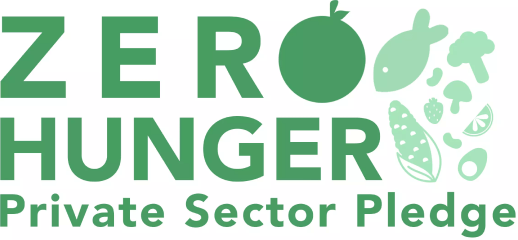
What’s the progress towards the 2030 Sustainable Development Agenda?
The below text is based on a round table discussion held during the Business Fights Poverty Global Summit. The Zero Hunger Pledge representative served as a lead table discussant on the topic of Integrating Social Impact into Business DNA.
Halfway through to 2030, we’re still heading in the wrong direction if we are to achieve the SDGs. After staying somewhat stable in the first five years following adoption of the 2030 Agenda, hunger started rising rapidly in 2020.
But all hope is not lost. Achieving the SDGs, and SDG 2 to end hunger in particular, remains within reach. Two projects (the Ceres2030: Sustainable Solutions to End Hunger report and joint FAO-ZEF research), for example, found that doubling donor spending could effectively end hunger and double the incomes of smallholder farmers, while also protecting the climate.
But let’s be real. Governments and donors’ budgets are more constrained than ever. It is becoming ever harder to mobilize the necessary resources relying on public sources only. This is where businesses come in.
There really is a tremendous opportunity for businesses to rise to the challenge and to seize the opportunity that the sustainable transition offers. It becomes a matter not only of survival and resilience for tomorrow, but also of competitive advantage today. So, if delivering on the SDGs is still feasible, and if it represents a business opportunity, what are we waiting for?
How can companies embed sustainability into their core business and unlock their power for impact?
Starting with the obvious, sustainability must be embedded within the business’ strategy. Sustainability departments cannot be acting in silo and separate from other business functions. Rather, sustainability must be a core pillar of the organization, a key direction for its long-term plans, and galvanizing for the entire workforce. Systemic and sustainable impact requires such a whole-of-business approach that a coherent sustainability strategy creates.
Second, there must be a shift from the mindset of managing risks to a mindset of seizing opportunities. Unlocking businesses’ potential for impact starts with recognizing the opportunities that lie within the SDGs – not only to ensure businesses’ own survival and sustainability in a rapidly evolving environment, but for them to truly embrace sustainability as a competitive advantage.
Finally, businesses must work with governments, civil society, and local communities to report transparently on their impact. In turn, governments’, civil society, and local communities’ role – in addition to that of investors themselves – is to hold businesses accountable to the sustainable development agenda as well as to the company’s own sustainability objectives.
How can the Zero Hunger Private Sector Pledge help businesses embed sustainability in their core business and unlock their power for impact?
The Pledge calls on companies to make commitments in the form of core business investments in line with a list of priority actions and countries. This list of priority areas for intervention is drawn from scientific evidence summarizing what is needed to achieve SDG 2 (zero hunger).
The Pledge thus gives businesses an opportunity to analyze and align their core business with the zero-hunger goal. From empowering smallholder women farmers to enabling climate-smart agriculture practices, to eliminating food loss and waste – the Pledge outlines ten priority actions for more sustainable agriculture and food systems.
But joining the Pledge is not just a promise – it is an occasion for businesses to reflect internally, and eventually report externally, on their impact, by sharing stories and showcasing evidence about the implementation of their pledge – thus attesting to the conversion of their commitment into real and meaningful investments on the ground.
How does the Zero Hunger Private Sector Pledge contribute to the SDGs?
The Zero Hunger Pledge enables businesses to not only advance but also accelerate progress towards SDG 2, by embedding that goal in their core business and aligning their core business investments with the global movement to end hunger.
The Pledge further accelerates progress on the entire sustainable development agenda because SDG 2, like all other SDGs, is part of an interconnected framework that contributes to a common vision for systemic and sustainable transformation.
